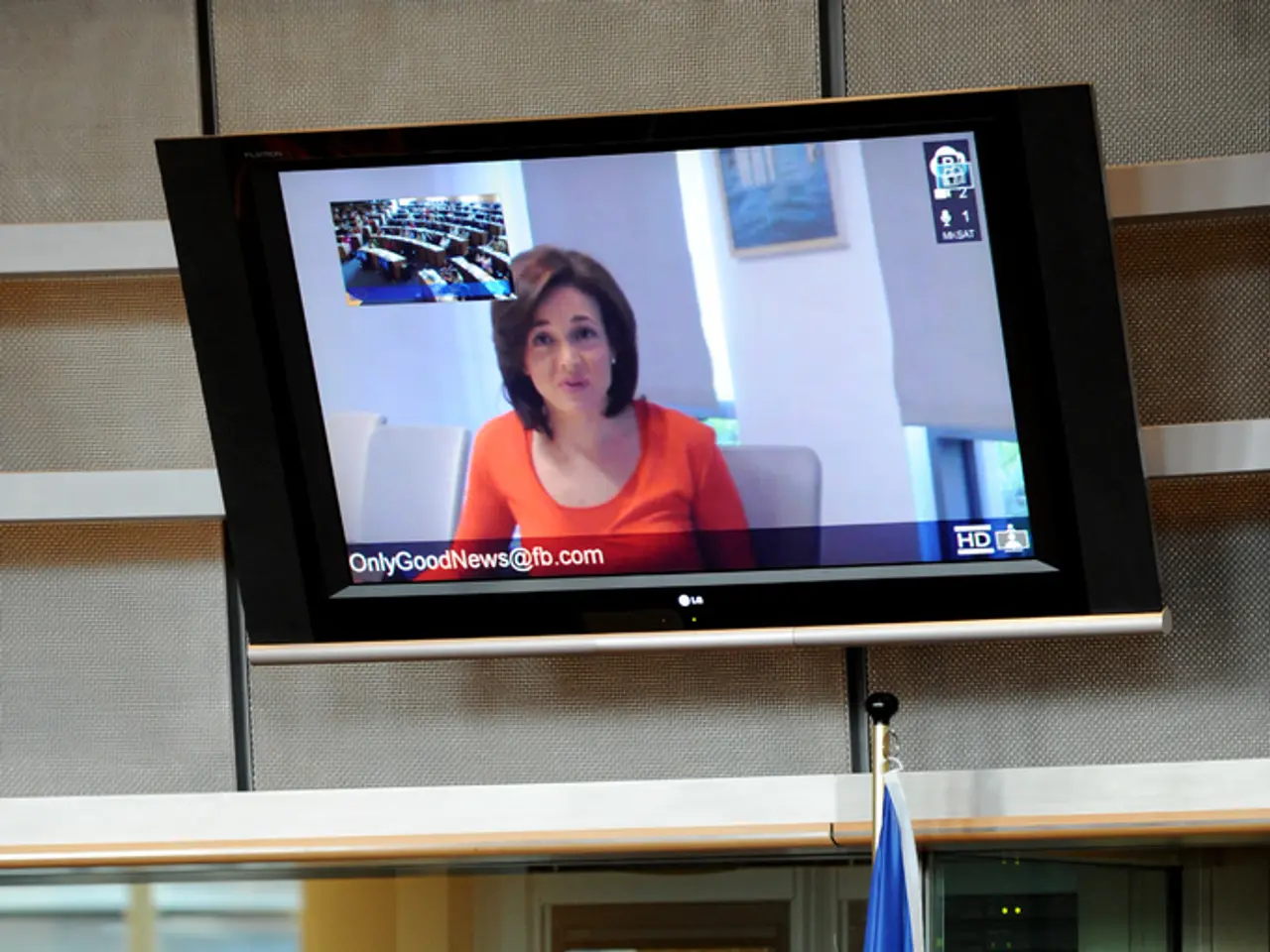Redesigning Channel 4's Tomorrow
Channel 4's Future: A Balancing Act Between Public Service and Commercial Imperatives
The UK government's decision to cancel plans to privatize Channel 4 Corporation marks a significant shift in policy, as the corporation's unique public service mission is deemed crucial to maintain. This move, a reversal of the previous administration's policy, comes amidst a suite of reforms aimed at ensuring Channel 4's growth and competition in an evolving media landscape.
As a publisher-broadcaster, Channel 4 actively commissions content from around 300 independent UK creative companies, supporting a diverse and vibrant independent production ecosystem. Relaxing this model, however, could have significant implications for both the UK independent production sector and the public value of UK public service broadcasting (PSB).
Implications for the UK Independent Production Sector:
The independent sector depends on Channel 4 to maintain public value programming and regional representation. Changes in commissioning strategy could reduce opportunities for these companies, potentially impacting their revenue and sustainability. The broadcaster currently seeks to increase quotas for commissioning content outside England, aiming for more sustainable support to companies outside England.
Implications for the Public Value of UK PSB:
The current Channel 4 model ensures a public service remit with dedicated commissioning of UK content that reflects diversity and regional representation, central to PSB's public value. Relaxing this model may weaken these commitments and reduce public interest programming. Ofcom has recently called for emergency safeguards to protect public service media against competition from global streamers, indicating concerns that relaxing PSB models could undermine unique UK content and public value.
Channel 4 has shown intent to boost representation and cultural diversity on air, including raising regional quotas. However, diluting publisher-broadcaster obligations could compromise these efforts. The broadcaster's ongoing financial and strategic challenges may push towards more commercially driven content and advertising models, potentially shifting focus away from public service aims toward profitability.
The government's Media Bill, following from the DCMS White Paper, will likely contain changes to the publisher-broadcaster model and new governance arrangements for Channel 4. Striking an effective balance between enabling in-house Channel 4 production to operate competitively and sustainably, while ensuring the UK's independent production sector is not jeopardized, will be a critical challenge for Channel 4’s future in the PSB ecosystem.
Since its founding in 1982, Channel 4's publisher-broadcaster model has played a pivotal role in driving the growth, competitiveness, and creative diversity of UK 'indies'. The cost of establishing a new in-house production outfit could disrupt Channel 4's current financial stability. The government's proposal to allow Channel 4 to produce and monetize its own content aims to give it a more stable financial footing by growing its commercial income.
Industry analysts estimate that between 2006 and 2019, 195 new production companies became successful businesses following initial commissions from Channel 4. Allowing Channel 4 to create its own programs could limit commissioning opportunities for UK indies, potentially leading to a loss of up to £3.7bn in commissions over 10 years.
The research team at the Creative Industries Policy and Evidence Centre, based at Cardiff University, welcomed the development. They had advised against a change of ownership in their submission to the 2021 government consultation. Careful consideration will need to be given to the implications of these reforms on the UK's creative industries, particularly the equity gap, the co-location with other industrial strategy priority sectors, and the implications for the creative self-employed workforce in England and Wales.
The article also discusses other contemporary issues such as the Mahakumbh Mela in India, 2025, and its festival economy; funding changes for culture in Scotland; the 2025 Spending Review and its implications for the creative industries; the importance of accredited qualifications in journalism; and the potential for a new AI Intellectual Property Right for composers, authors, and artists.
Professor Dave O'Brien, a Professor of Cultural and Creative Industries at the University of Manchester, underscores the need for policymakers to take the opportunity for an extensive, evidence-led public debate on the role and public value of PSB in an evolving media landscape when the reforms reach parliament.
- The UK government's decision to retain Channel 4 Corporation, as opposed to privatizing it, reflects a substantial policy shift, prioritizing its unique public service mission.
- Relaxing Channel 4's commissioning strategy could have significant implications for the UK independent production sector, potentially impacting their revenue and sustainability.
- The public service remit of Channel 4 ensures dedicated commissioning of UK content that reflects diversity and regional representation, central to public service broadcasting's (PSB) public value.
- Changes in Channel 4's commissioning strategy may weaken these commitments and reduce public interest programming, potentially undermining unique UK content and public value.
- The broadcaster's ongoing financial and strategic challenges may push towards more commercially driven content and advertising models, potentially shifting focus away from public service aims towards profitability.
- The government's Media Bill, following from the DCMS White Paper, will likely contain changes to the publisher-broadcaster model and new governance arrangements for Channel 4.
- Industry analysts estimate that between 2006 and 2019, 195 new production companies became successful businesses following initial commissions from Channel 4, but allowing Channel 4 to create its own programs could limit commissioning opportunities for UK indies.
- Careful consideration will need to be given to the implications of these reforms on the UK's creative industries, particularly the equity gap, the co-location with other industrial strategy priority sectors, and the implications for the creative self-employed workforce in England and Wales.
- Professor Dave O'Brien, a Professor of Cultural and Creative Industries at the University of Manchester, emphasizes the need for policymakers to engage in an extensive, evidence-led public debate on the role and public value of PSB in an evolving media landscape when the reforms reach parliament.
- The article also covers various contemporary issues such as the Mahakumbh Mela in India, 2025, and its festival economy; funding changes for culture in Scotland; the 2025 Spending Review and its implications for the creative industries; the importance of accredited qualifications in journalism; and the potential for a new AI Intellectual Property Right for composers, authors, and artists.








